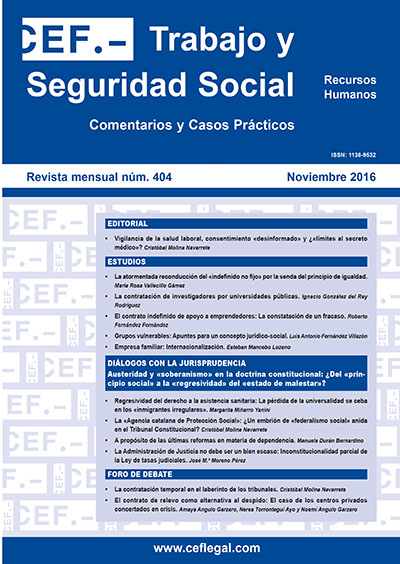The «unlimited non permanent» workers and the European principle of equality and non-discrimination: Between tradition and renovation
DOI:
https://doi.org/10.51302/rtss.2016.2214Keywords:
unlimited non permanent worker, equality rights, European case-law, temporary employment contractsAbstract
Initially without any legislative prediction, social case-law, unlike the administrative law recognized the dim figure of the «unlimited non permanent worker». This strange kind of public employment relationship was recognized without any development by the Basic Statute of Public Employees (LEBEP). Nearly a decade there isn’t a legislator has dared to offer any development of this figure, and they merely to see the exponential growth a new figure that is only a reflection of the spread of deep anomalies in the management of public employment, and that by different ways as judicial, legal or in collective agreements. Consequently, over time, far from clarifying the situation of this growing «cohort» of this misted public employees, it has contributed to get complicate, because the extension of the European principle of equal treatment, recognized in social and community more recent case-law, still find an intense resistance from public managers to get this into practice. Very recent experiences in different regions, as Andalusia, but not only, are showing every day that conflicts are increasingly and leaving «unlimited non permanent workers» in a twilight zone, a sometimes even in no man's land. The most recent case law in Court of Law assumes the legitimacy that in casual administrative public employment can be given this «sanction» to this abuse of administrative appointments that not only worsen the problem but also gives it a new current and serious situation.
In this paper we analyze this complex and growing situation. We will realize the great importance that both the latest labor reforms and European case-law are making on the delimitation of the permanent tension between the reasons of equality and unreason persistent differences. The result is, however, undefined.



















